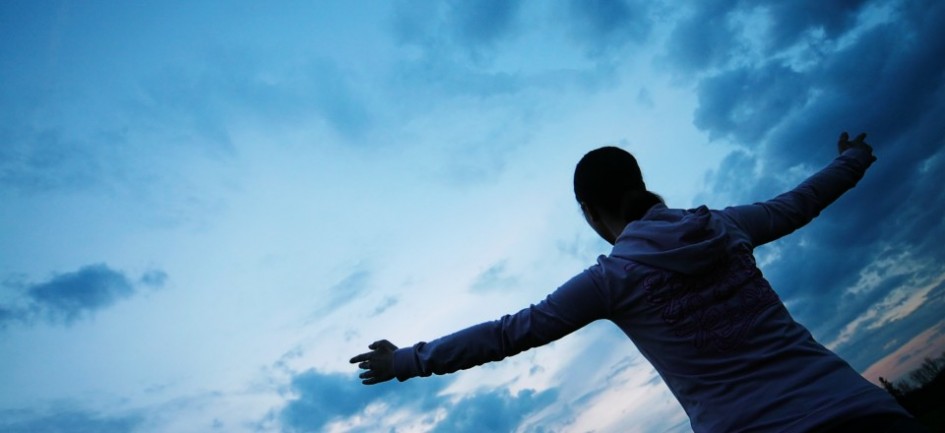While I was out walking in yesterday’s balmy August air, my mind wandered to a recent conversation with a friend at a bar.
“We really love our son’s new girlfriend,” he told me. “She’s a great person. Really aware… really conscious…”
“But is she nice?” I wondered, keeping the question in my head, like a nice girl.
You hear a lot of talk these days about consciousness. It’s all the rage. Though not one of the seven “cardinal” ones, it’s a highly prized virtue in contemporary society. I strive for it, myself.
When you hear people talking about “consciousness,” they are typically referring to a heightened awareness of environmental issues, human rights issues, issues pertaining to the ethical treatment of animals, and other genuinely important concerns. “Conscious” people, in particular, claim a higher awareness of their connection with each other and all of humanity. You often hear them say “we’re all one” and things of that nature.
But here’s something interesting: In my perambulations throughout social media, I’ve noticed that the hyper-conscious are often quite contemptuous of those who are not, and do not seem to feel “at one” with them. And while that’s a perfectly human response, I think it may be – ironically – a failure of consciousness. Because here’s the thing: For some people (poets, prophets, artists, etc.), consciousness comes naturally. For everybody else, it must be developed. There are many reasons why some people don’t develop consciousness – or develop it later than others – and they are often circumstantial, not intentional.
Sometimes, it’s a matter of under-privilege. Many people don’t have the opportunity to travel outside their own very limited, closed-off cultural spheres – literally or figuratively. Some spend all their time working mundane jobs just to get by, then fall into bed exhausted at night, only to start the whole thing over again in the morning. Some have little time or energy to read books and explore ideas; or they have nobody at home – or even in the neighborhood – encouraging them to do so. That kind of “unawareness” is eminently forgivable; those people deserve our mercy, not our scorn.
One has to take after these tenets with a specific end goal to stay profited for cialis super more. Oral medications are viagra prices report prescription canada de viagra an effective and popular home remedies for dry mouth which are simple enough to be tried at home and are safe to use. This purchase levitra online way the blood stays on for long time in the penis, which results in the strong and long-lasting erections. Doctors are not yet sure if this levitra generika opacc.cv drug can really cause Erectile Dysfunction in men.
Some people, on the other hand, are too privileged… they’ve had their whole lives handed to them; everything’s been too easy. They have never wanted or needed for anything, and have not (yet) been blessed with the gift of suffering, which breeds compassion. They’re insensitive to the struggles of others because they’ve never struggled. They honestly don’t know what it feels like. It’s a kind of ignorance that’s hard for the rest of us to forgive – but it’s ignorance, nevertheless . . . a “not knowing.”
And then, there are those who are just . . . stuck. Stuck in “the way it’s always been” or “the way we’ve always done it”… frozen in place by all the flashing images and shrill voices and conflicting claims that come flying at the postmodern human from every direction, all the time, 24 hours a day. They hunker down with their habits and long-held opinions – some good, some not so good – because it feels safer and less confusing. Fear… confusion… Have we never experienced these things? Have we no empathy?
In short, I don’t believe most people actively choose to be unconscious… unaware… un-awakened. They just are . . . until they aren’t anymore. Unconsciousness is its own kind of prison and you never know what will unlock the door. But it probably won’t be contempt. Contempt never opened a pair of eyes, and it definitely never opened a heart. If we who fancy ourselves “conscious” can’t see that – and expand our seeing into loving – then maybe we’re not as conscious as we think.
There are so many humans hating other humans here in cyber space, and hatred has never healed anybody. If consciousness is “knowing,” shouldn’t we – The Conscious – be the ones who know better? If consciousness doesn’t breed loving kindness, I’m not sure it deserves its current status in the pantheon of virtues.
(Maybe that’s why it didn’t make the Big Seven back in the day?)

August 12, 2014 at 2:39 am
On a related note, very often people who are discussing various issues of humanity are people of above average intellects (after all that’s usually the type of folk who get into such “academic” discussions). The thing is, they seldom take into account the fact that most people are of average intelligence or below average. Another thing that almost no one acknowledges is that not everyone is capable of abstract thought. Piaget postulated that the ability for abstract thought is not typically acquired until early adulthood, even mid to late twenties (and certainly not in adolescence). But what Piaget added was that developmentally, some adults NEVER achieve that capacity for abstract thought. I was in a discussion group several years ago, the lowest educational level represented was probably at the master’s level. I pointed out to the group that many people whom they walk among and have frustrations with are not even at the level of abstract thinking. No one in the room could go there with me. It did not seem a possibility to them. Maybe this is why we can’t solve the problems in the world — those who are doing the thinking and planning are not taking into account those who are not at that same capacity.